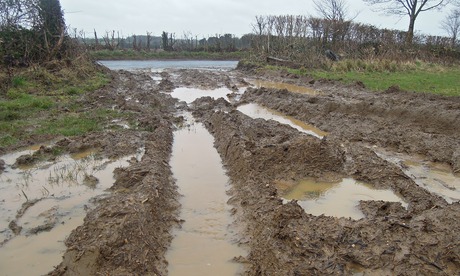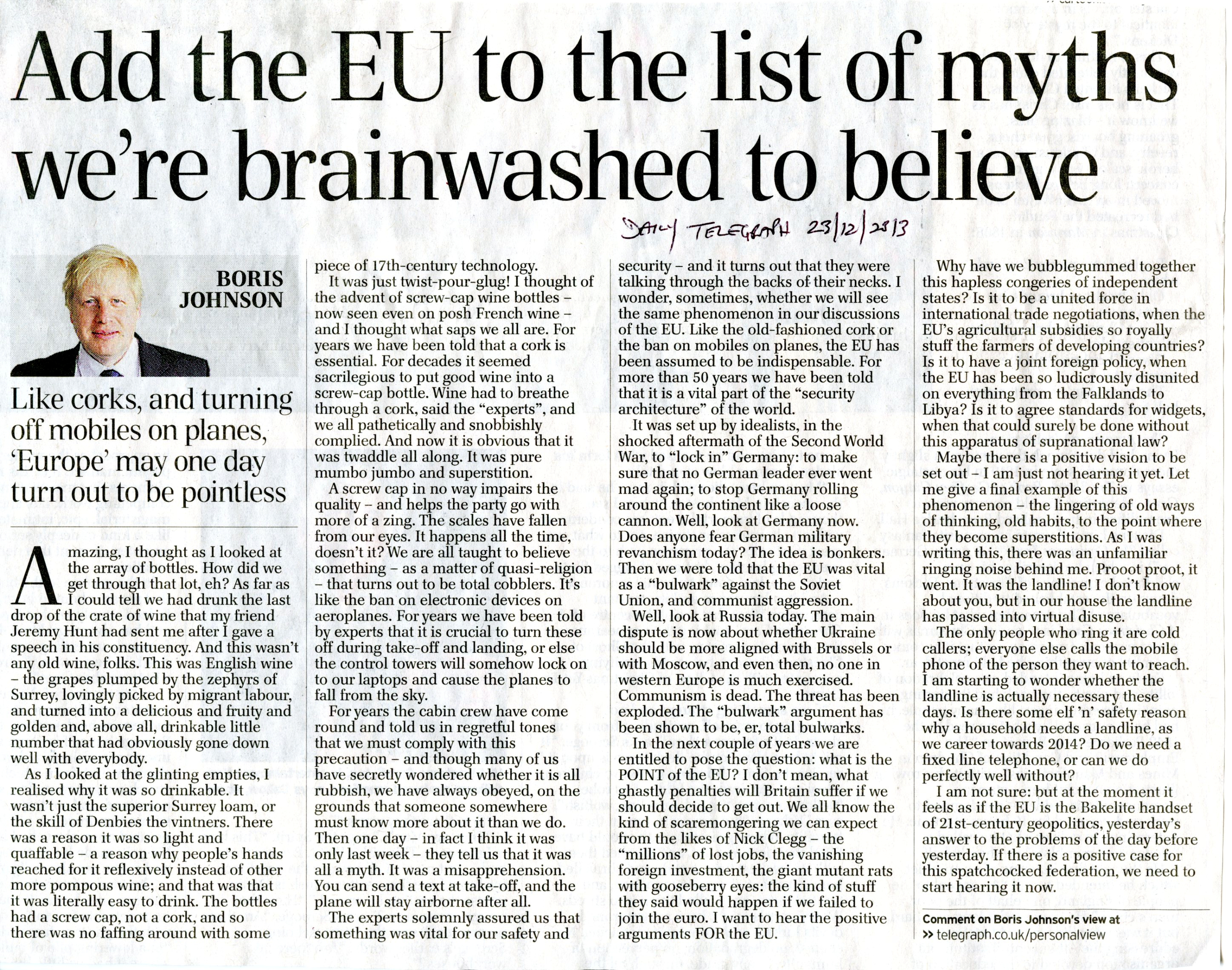I’m coming to like the idea of beavers. And no, I don’t mean those, I mean the animated furry kind. Oh maybe not that either … the animals what build dams in rivers, m’lud.
I used not to think much of these animals, but research seems to be showing that they really do have a beneficial effect on water management, otherwise known as flood control.
And beavers are back on the agenda (well, maybe) because a large part of southern England is under water thanks to a record breaking deluge over the last 2-3 months. December and January rainfall has been the heaviest in England and Wales since records began 240 years ago — and it looks as if February is about to join them.
According to New Scientist the rains have been exacerbated by the weather in Indonesia and the tropical west Pacific — no I don’t get that either but then I’m not a meteorologist. But regardless, we’ve had several oceans of rain recently and consequently there is much flooding in southern England.
There is an argument going on about whether rivers were dredged sufficiently, and whether if they were it would have made any difference. On the one side we appear to have the UK government who say rivers must be dredged more and they’ll pay — mainly because they’re trying to appease agribusiness. On the other hand every hydrologist being quoted is saying dredging would, at best, have made no difference and would likely have made things worse.

I think I might just trust the hydrologists rather than the politicians.
Joining in with the hydrologists is environmentalist and thinker George Monbiot. His piece in the
Guardian at the end of January mocks the politicians’ unseemly positions but also makes many salient environmental points which the politicians appear to have missed (or ignored).
Quoting from an Environment Agency report, Monbiot says:
“Dredging of river channels does not prevent flooding during extreme river flows … The concept of dredging to prevent extreme flooding is equivalent to trying to squeeze the volume of water held by a floodplain within the volume of water held in the river channel. Since the floodplain volume is usually many times larger than the channel volume, the concept becomes a major engineering project and a major environmental change.”
He then says:
Is that not bleeding obvious? A river’s capacity is tiny by comparison to the catchment from which it draws its water. You can increase the flow of a river by dredging, but that is likely to cause faster and more dangerous floods downstream when the water hits the nearest urban bridge … If you cut it off from its floodplain by turning it into a deep trench, you might raise its capacity from, say, 2% of the water moving through the catchment to 4%. You will have solved nothing while creating a host of new problems.
Among these problems, the Environment Agency points out, are:
1. Massive expense. Once you have started dredging, “it must be repeated after every extreme flood, as the river silts up again”.
2. More dangerous rivers: “Removing river bank vegetation such as trees and shrubs decreases bank stability and increases erosion and siltation.”
3. The destabilisation of bridges, weirs, culverts and river walls, whose foundations are undermined by deepening the channel: “If the river channels are dredged and structures are not realigned, ‘Pinch Points’ at structures would occur. This would increase the risk of flooding at the structure.” That means more expense and more danger.
4. Destruction of the natural world: “Removing gravel from river beds by dredging leads to the loss of spawning grounds for fish, and can cause loss of some species. Removing river bank soils disturbs the habitat of river bank fauna such as otters and water voles.”
Yep, that’s right: dredging is a tool for improving navigation not land drainage. If you want to prevent flooding you need to do things like:
• More trees and bogs in the uplands — reconnecting rivers with their floodplains in places where it is safe to flood …
• Making those floodplains rougher by planting trees and other deep vegetation to help hold back the water — lowering the banks and de-canalising the upper reaches, allowing rivers once more to create meanders and braids and oxbow lakes. These trap the load they carry and sap much of their destructive energy.
So how should all this be done?
Well one answer appears to be beavers!
Yes, beavers. The pesky furry critters what fell trees and build dams.
We used to have beavers in this country but they were hunted to extinction here several hundred years ago — they lasted until Tudor times in Scotland but disappeared from England long before that.
Why beavers? Well to quote from a
Wild Wood Trust document:
Beaver are considered to be a ‘key-stone’ species because they have the ability to create and maintain wetlands by building dams and digging ditches. They also create coppice, selectively felled areas of woodland. In doing this they provide essential habitat for many other species of plant and animal. Wetland areas and coppice must currently be maintained artificially, at significant cost to the public. Beaver damming activity has also been observed to filter pollutants out of the water, leaving streams cleaner.
Wetlands are … fragile ecosystems, but they can also act as a flood defence and could protect homes across the country. After heavy rainfall, wetland areas and flood plains act as a sponge, holding excess water and releasing it slowly, preventing sudden rises in water level and flash floods …
Beavers have been reintroduced across Europe, and have not caused any serious ecological problems. Reintroductions have been extremely successful as long as the population density is low enough that the beavers do not come into conflict with human activity.
There’s a fuller report, by Natural England and People’s Trust for Endangered Species, on reintroducing beavers to England here.
Sure, beavers likely aren’t going to do a lot of good actually on the Somerset Levels. But they will help if they are present on the uplands which drain into the Levels. One of the keys seems to be the need to manage water flow much higher up the valleys than the actual areas currently being flooded.
But of course that’s counter-intuitive both to the affected residents and to politicians. And of course neither trusts the experts who they employ. If you’re not going to listen to experts — insisting instead on a DIY fuck-up — then don’t waste money employing them.
So the bottom line is we need to reintroduce beavers.
What a great idea!
Meanwhile I’ll leave you with George Monbiot’s final salvo:
Cameron’s dredge pledge is like the badger cull. It is useless. It is counter-productive. But it keeps the farmers happy and allows the government to be seen to be doing something: something decisive and muscular and visible. And that, in these dismal times, appears to be all that counts.







